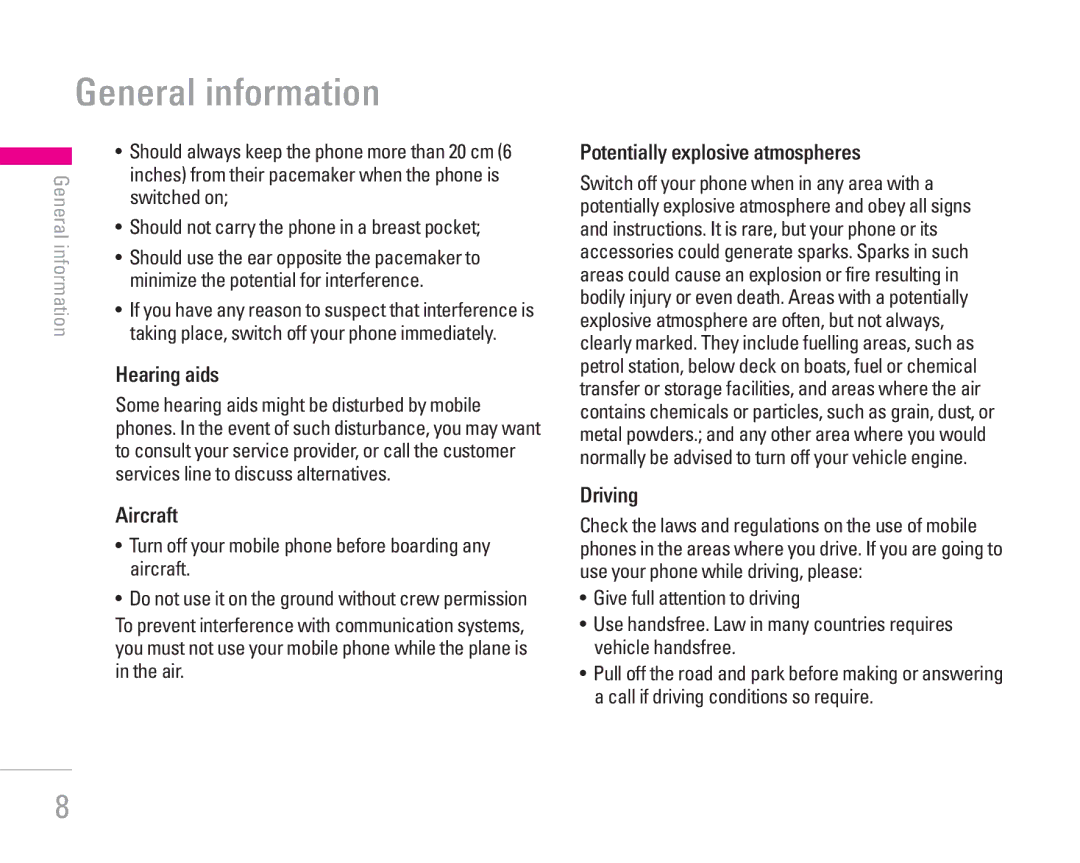General information | ||
• Should always keep the phone more than 20 cm (6 | ||
inches) from their pacemaker when the phone is | ||
General | ||
• Should not carry the phone in a breast pocket; | ||
| switched on; | |
information | • Should use the ear opposite the pacemaker to | |
minimize the potential for interference. | ||
| ||
| • If you have any reason to suspect that interference is | |
| taking place, switch off your phone immediately. | |
| Hearing aids | |
| Some hearing aids might be disturbed by mobile | |
| phones. In the event of such disturbance, you may want | |
| to consult your service provider, or call the customer | |
| services line to discuss alternatives. |
Aircraft
•Turn off your mobile phone before boarding any aircraft.
•Do not use it on the ground without crew permission
To prevent interference with communication systems, you must not use your mobile phone while the plane is in the air.
Potentially explosive atmospheres
Switch off your phone when in any area with a potentially explosive atmosphere and obey all signs and instructions. It is rare, but your phone or its accessories could generate sparks. Sparks in such areas could cause an explosion or fire resulting in bodily injury or even death. Areas with a potentially explosive atmosphere are often, but not always, clearly marked. They include fuelling areas, such as petrol station, below deck on boats, fuel or chemical transfer or storage facilities, and areas where the air contains chemicals or particles, such as grain, dust, or metal powders.; and any other area where you would normally be advised to turn off your vehicle engine.
Driving
Check the laws and regulations on the use of mobile phones in the areas where you drive. If you are going to use your phone while driving, please:
•Give full attention to driving
•Use handsfree. Law in many countries requires vehicle handsfree.
•Pull off the road and park before making or answering a call if driving conditions so require.
8
